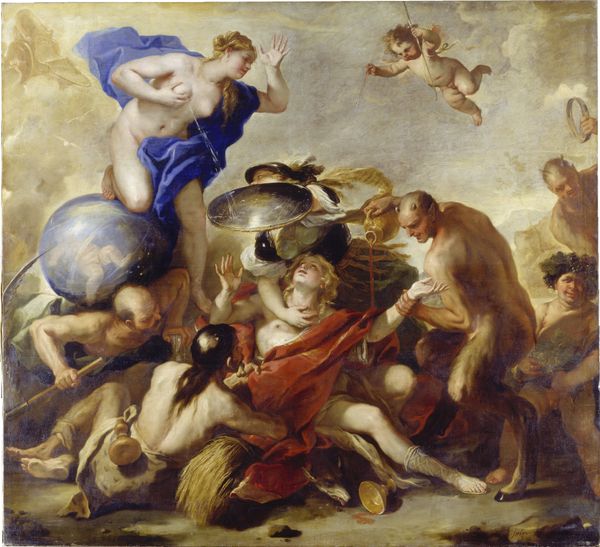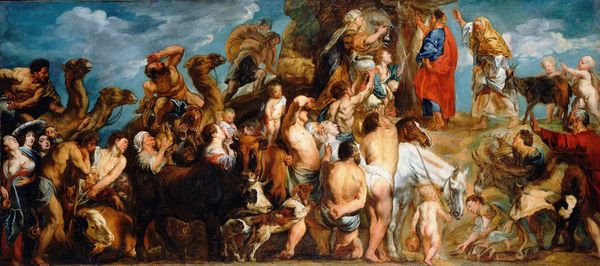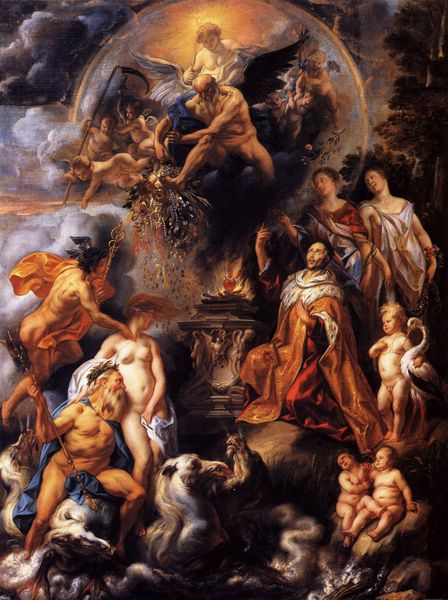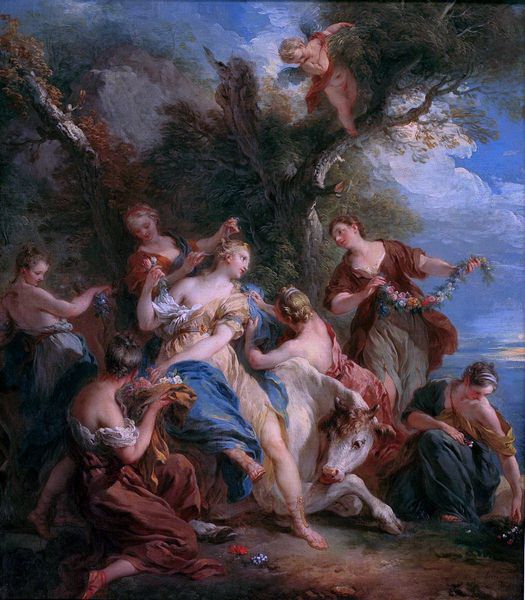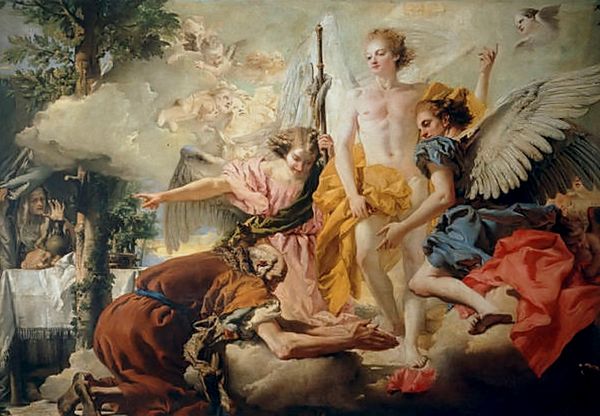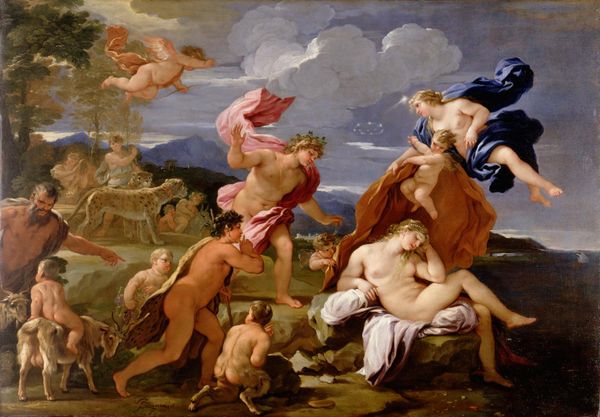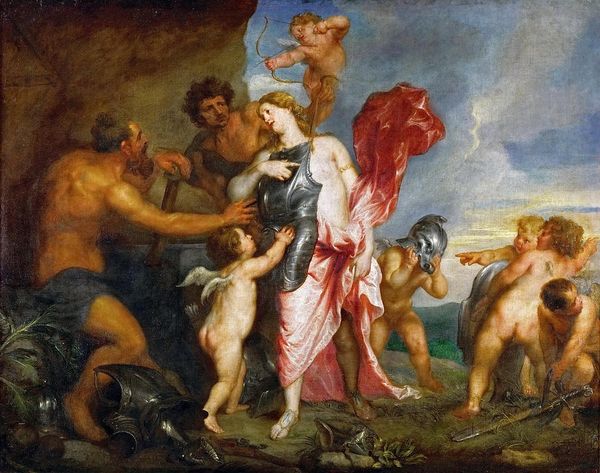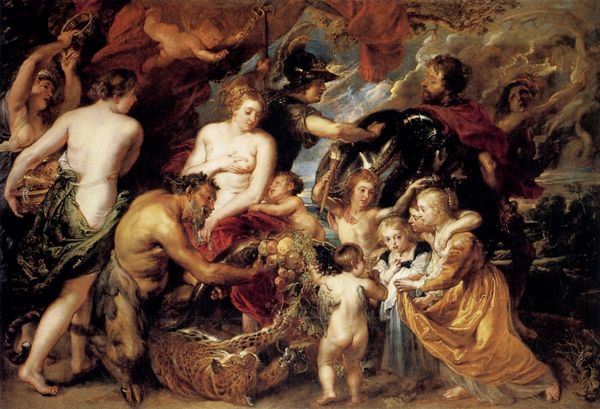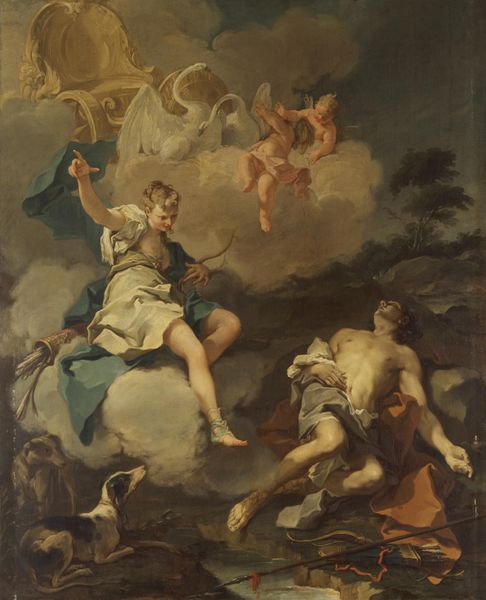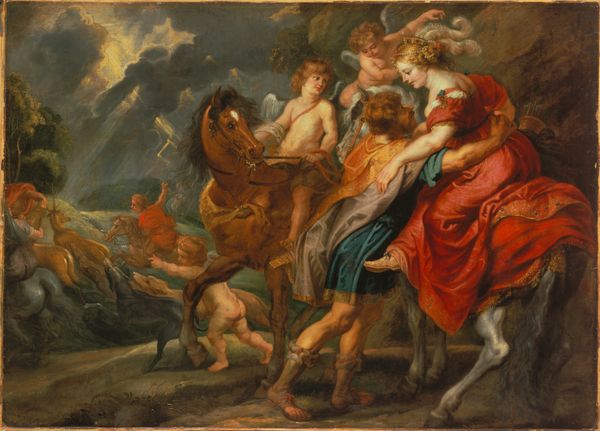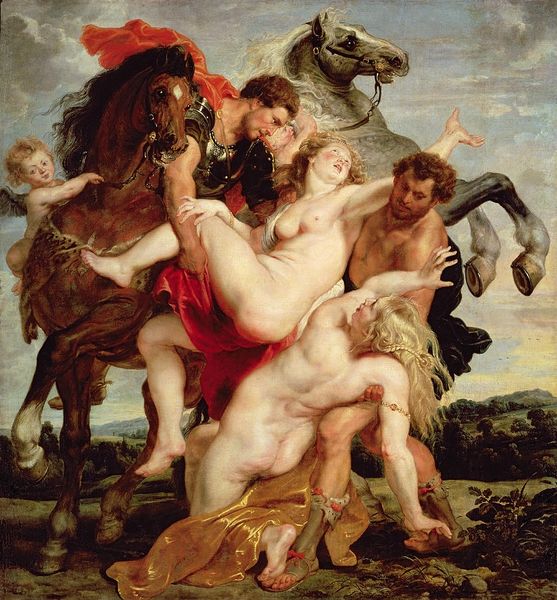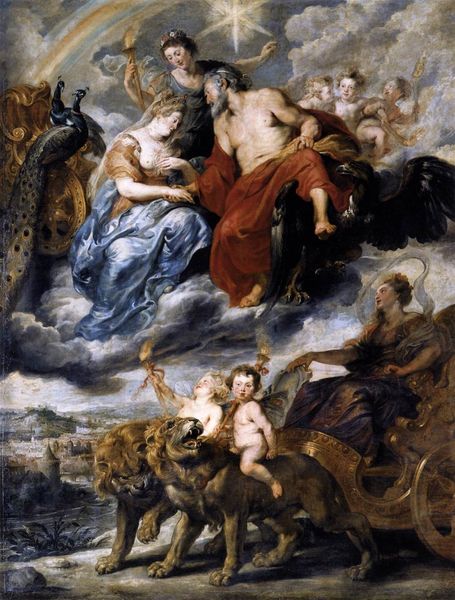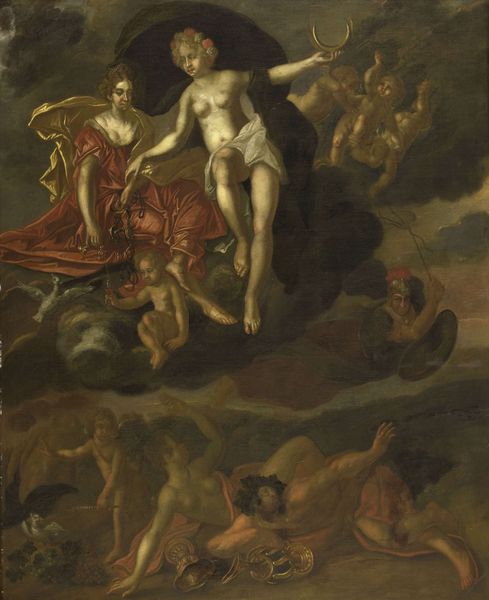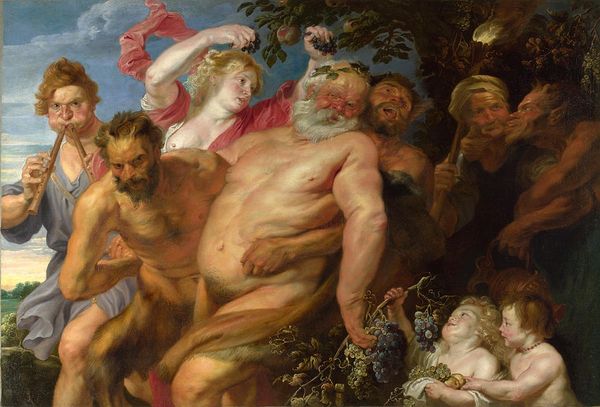
painting, oil-paint
#
allegory
#
baroque
#
painting
#
oil-paint
#
figuration
#
oil painting
#
romanticism
#
history-painting
#
nude
Copyright: Public domain
Peter Paul Rubens painted “Thetis Receiving the Arms of Achilles from Vulcanus” in the 17th century. It’s a moment brimming with precarity, painted during a time of shifting European power dynamics. Rubens captures Thetis, a goddess, as she receives armor for her son Achilles, destined for the Trojan War. But what does it mean to equip someone for war? Thetis appears caught between maternal love and the knowledge of her son's fate, a poignant tension for mothers sending children off to battle even today. Rubens, a diplomat as well as an artist, understood the human cost of conflict. There’s a charged contrast between the sensuous, soft figures of Thetis and her attendants, and the muscular, active body of Vulcanus, hard at work forging instruments of war. The painting acknowledges that war and beauty, creation and destruction, are always intertwined. This intersection of personal emotions and political realities is characteristic of Rubens’ work.
Comments
No comments
Be the first to comment and join the conversation on the ultimate creative platform.
